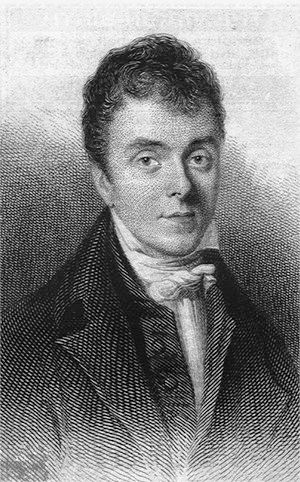As we approach the third millennium the foremost issue facing the church is the completion of the great mandate to take the gospel to all nations. In China, Africa and Central and South America, as also elsewhere, there has been rapid growth during the twentieth century. But will the gospel continue to spread until the whole world is filled with the truth of Scripture? The Puritans were optimistic!
Exaltation of Christ
The Larger Westminster Catechism, question 191, sums up the Puritan view. ‘What do we pray for in the second petition of the Lord’s Prayer? Answer: We pray that the kingdom of sin and Satan may be destroyed, the gospel propagated throughout the world, the Jews called, and the fulness of the Gentiles be brought in’. This answer expresses the programme of God for the nations. Foundational to the sovereign programme of the Father is the exaltation of Jesus Christ. In his exposition of Psalm 110, Edward Reynolds (1593-1676) observes that ‘this reign at the right hand of the majesty and glory, signifies to us the great exaltation of the Lord Christ’. Psalm 110:1 describes the throne from which Christ initiates and pursues his conquest. ‘The Lord says to my Lord, Sit at my right hand until I make your enemies a footstool for your feet’. The Puritans varied in their view of prophecy but the majority believed that the cause of Christ would be victorious in the world.
Conflict and apostasy
Puritan expositors such as Reynolds, Matthew Henry and Matthew Poole subscribed to the following principles:
1. There will be one final period known as ‘the last days’ extending from the first to the second advent of Christ.
2. Christ will employ his power increasingly during that time to subdue his enemies.
3. Christ’s power is exerted to subdue his enemies in order that his kingdom can extend and his church be built among all nations.
4. This will be accompanied by conflict.
Concerning the first of these principles, Psalm 110:1 is the most cited Old Testament text in the New Testament. For example, in 1 Corinthians 15:25 Paul declares that Christ must reign at the Father’s right hand until he has put all his enemies under his feet. The last enemy to be destroyed is death.
The second principle stated above relates to the enemies of Christ. These include powers of evil and apostasy that have worked in the church to destroy it. The most telling passage is 2 Thessalonians 1-12, which concerns ‘the man of sin’ and is often called ‘the little apocalypse’. Thomas Manton expounded these verses in ten sermons. He demonstrates that the apostasy described by Paul is the apostasy from apostolic Christianity which took place over the centuries, and is seen in the development of the Roman Catholic Church and the papacy which usurped the gospel. This was the teaching of mainline Puritanism and is enshrined in the Westminster Confession of Faith.

John Calvin interprets the passage as apocalyptic in style and not literal. Concerning ‘the man of sin’, he says, ‘Paul is not speaking of one individual, but of a kingdom that was to be seized by Satan for the purpose of setting up a seat of abomination in the midst of God’s temple. This we see accomplished in popery’. Concerning the Antichrist Calvin asserts, ‘For quite certainly Paul meant that Antichrist would seize the things which belong to God alone, his purpose being to exalt himself above every divine power, so that all religion and all worship of God should lie beneath his feet’. This interpretation is followed by John Owen.
No apostasy from apostolic Christianity can be compared to the papacy. For over a thousand years the gospel became more and more subverted and covered over with error. The church became the monolithic, sacral persecutor of the faithful, driving them to death or into the wilderness as described in Revelation chapter 12.
Christ’s reward
If Scriptures which describe antichrists are taken out of context, then the future is one of fearful doom and gloom. However, if these texts are taken as warnings within the framework of God’s overall purpose, and in the context of the advance of the gospel worldwide, we may be more optimistic. Two processes are working side by side. The first is that evildoers will get worse and worse. We see this illustrated in such things as drug traffic, organised crime, and in corrupt civil governments, as well as in the landslide of personal morality. The second is that in spite of huge opposition, our Lord will have victory over his enemies and will not return until they have become his footstool (1 Corinthians 15:25).
The third principle mentioned earlier is that the gospel will triumph throughout the world. The glory of Christ in the victories of his holy gospel must be commensurate with the horrendous nature of his sufferings. His reward is described in Psalm 22:27-31 and Isaiah 49:1-7. The salvation he brings will not be done in a corner. It will extend to the ends of the earth. Kings will acknowledge the glory of Christ. Psalm 2 tells us that the nations will be given to Christ and the uttermost parts of the earth will become his possession. He will crush those kingdoms and bring them to an end, but his kingdom will itself endure forever. ‘The stone that struck the feet of the image itself grows and fills the whole earth’ (Daniel 2:35).

Outpouring of the Spirit
Many other passages run parallel to this, such as Isaiah chapters 2 and 11, 60 and 61. John Howe opens up Isaiah 2:2 in an exposition titled, The Prosperous State of the Christian Interest before the end of Time by a plentiful effusion of the Holy Spirit. He believes that ‘in the latter part of the latter time’ there will be a great outpouring of the Holy Spirit, resulting in a cessation of wars and ‘such a time as the world hath not yet known’. Psalm 72 confirms that the whole earth is to be ‘filled with the glory of the Lord as the waters cover the sea’. Psalm 72 and Isaiah 64 provide models as to how we are to pray for this to take place. These are not descriptions of heaven but rather prayers which involve great conflict, a struggle for justice, and the relief of the oppressed.
The calling of the Jews
Elnathan Parr exercised a powerful ministry at Palgrave in Suffolk. In his commentary on Romans 11, Parr develops the contrast between the Jews and Gentiles. ‘The casting off of the Jews was our calling but the calling of the Jews shall not be our casting off but our greater enriching in grace’. On verse 15 he comments, ‘For if their rejection is the reconciliation of the world, what will their acceptance be but life from the dead?’ Parr suggests that ‘the calling of the Jews seems a thing impossible, yet it is not so to God, who can as easily call them to Christ as raise the dead’ and adds, ‘Here we are put in mind to pray for the Jews’. ‘Life from the dead’, Parr suggests, signifies revival, life, vigour, vivacity. On verse 25, ‘And so all Israel will be saved’, he writes, ’Before the end of the world, the Jews, in regard to their multitude shall be called’. Parr interprets ‘the fulness of the Gentiles’ as a full and plentiful propagation of the gospel whereby many of all of the nations shall be converted to God. He suggests, as do modern commentators, that the comparison of Jews and Gentiles is sustained throughout the passage and this argument is irresistible.

Patience and prayer
The Puritan doctrine of the last things is a doctrine which inspires prayer, motivates effort, inculcates endurance and strengthens patience. Battles may be lost but there is absolutely no doubt about who will win this war! It is this view of the promises of Scripture which inspired and motivated pioneer missionaries such as William Carey, Adoniram Judson and Henry Martyn.
One of the first to implement this outlook in missionary work was the Puritan John Eliot who in 1631, at the age of twenty-seven, sailed for Massachusetts. He became pastor of a new church near Boston. Burdened for the Indian tribes, he set himself to master the Algonquin language. He began at the age of forty and eventually translated the entire Bible into Algonquin. Converts were made, churches planted and Indian pastors trained. By the time of his death at the age of eighty-four, there were many Indian churches.
Surely, as has happened before, powerful forces of motivation and determination will be unleashed once the church grasps the fact that it is our Father’s intention and purpose to subdue and overcome all the systems of false religion arrayed against his Son. He urges in the second Psalm, ‘Ask of me, and I will make the nations your inheritance, the ends of the earth your possession’. And through Malachi he declares, ‘My name will be great among the nations, from the rising to the setting of the sun. In every place incense and pure offerings will be brought to my name, because my name will be great among the nations, says the Lord Almighty’ (Malachi 1:11).










